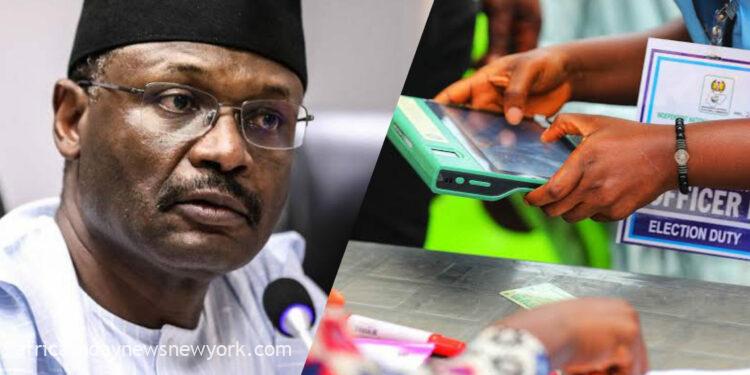A digital forensic expert whose name was given as Hitler Nwuala, yesterday told the Presidential Election Petition Court (PEPC) in Abuja that the Independent National Electoral Commission (INEC) deliberately deleted all the results of presidential elections from the Bimodal Voter Accreditation System (BVAS) machines of the Federal Capital Territory (FCT) under the guise of preparing for the governorship election which was eventually held on the 18th of March.
The forensic expert who was the 26th witness called by Atiku Abubakar, who was the presidential candidate of the Peoples Democratic Party (PDP) in the February 25 poll, claimed to have inspected 110 BVAS devices used during the presidential polls in the FCT and insisted that all the machines he inspected had their data deliberately deleted.
During cross-examination by INEC’s lawyer, Abubakar Mahmoud, Nwuala maintained that it was unnecessary for the electoral body to have deleted the presidential election result data from BVAS machines used in the FCT because the FCT did not hold governorship elections.
The witness, who was led in his evidence by Chris Uche, the lead counsel to the petitioners (Atiku and PDP), informed the court he examined 110 BVAS machines as sample material from the FCT and submitted a report of his investigation carried out on the BVAS.
The report was subsequently admitted as evidence and marked as exhibits, despite objections by the respondents in the matter.
Read Also: 2023: How BVAS Machines Failed Us, INEC Officials Tell Court
Thereafter, the petitioners tendered a certificate of compliance to indicate that the report had complied with the Evidence Act.
Nwuala, who is a subpoenaed witness to the court, said during cross-examination that since there is a deviation in the small sample space of 110 samples analysed, ‘it is likely to increase as the number of sample size increases.’
The expert witness asserted that his findings showed that the election results of the Federal Capital Territory during the presidential elections were deliberately deleted from the BVAS machine.
He told the court that he ‘worked on 110 BVAS machines, which formed the primary source of information for his forensic report.’
He said that the machines inspected were only those from the FCT and that he did not know at what point the results were deleted from the machines.
Under cross-examination by Abubakar Mahmoud, counsel to INEC, the witness said that he attached a standard device to the BVAS machine to carry out his investigation.
However, INEC challenged his allegation, insisting that because he did not inspect all the machines, his claim was wrong, but the witness maintained his stance.
Mahmoud presented to the court, for demonstration, a BVAS machine, which he asked the witness to access and show proof that the data was deleted.
The witness said it was professionally wrong for him to access the machine directly.
He said: ‘We don’t access the source of evidence directly. We extract the evidence and access it from another source.
‘If we access it now, the content will change and will tamper with the evidence. It is professionally wrong to tamper with evidence that will be relied upon in a court of law.’
INEC insisted the BVAS must be inspected in court. But the chairman of the five-man panel, Justice Haruna Simon Tsammani informed the counsel that the allotted time for conducting his cross-examination had elapsed.
Meanwhile, counsel for Tinubu, Wole Olanipekun, pointed out disparities in the forensic report concerning the number of machines inspected by the witness.
The senior advocate hinted that the report could equally be riddled with errors, but the witness told the court that the differences dictated in the numbers were typographical errors.

